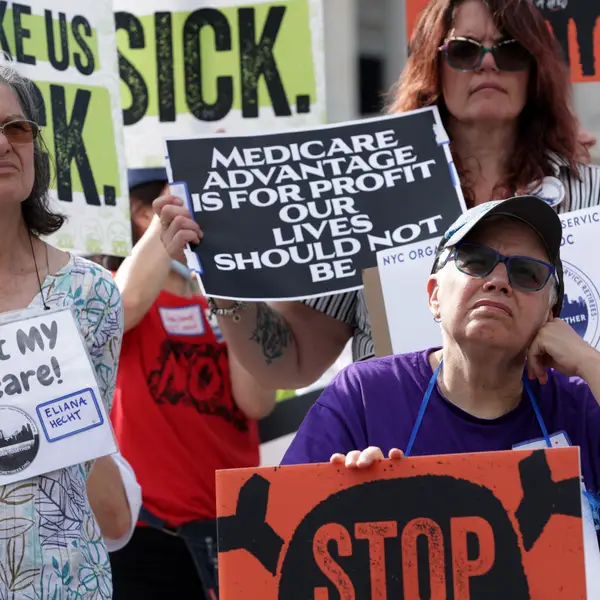New legislation introduced Wednesday by Sen. Ed Markey and Rep. Maxwell Frost would require Medicare to fully cover the cost of "home resiliency" equipment such as heat pumps, air conditioning, and solar batteries in an effort to keep seniors and people with disabilities safe from worsening climate chaos.
The Survival Aid for Emergencies (SAFE) Through Medicare Act was
introduced shortly after Tuesday was tentatively deemed Earth's hottest day on record as large regions of the planet continue to suffer sweltering heatwaves that have put many lives at risk.
Such extreme weather is
particularly dangerous to seniors and people with disabilities, and governments have been accused of ignoring the needs of those populations for years as the climate crisis intensifies. This year alone, at least seven extreme weather events in the U.S. have inflicted $1 billion or more in damage to homes, businesses, and other infrastructure.
"Climate justice is a matter of disability justice," Markey (D-Mass.) said in a statement Wednesday. "When the temperature skyrockets and the power goes out, things like solar batteries and heat pumps become medical devices. The SAFE through Medicare Act will keep people safe in their homes and prevent medical tragedies. It's time that we guarantee that seniors and people with disabilities can safely weather the climate crisis."
"Safe housing is a key predictor of health and safety through disaster."
A
one-page summary of the new legislation notes that "stronger storms and hotter heatwaves are wreaking havoc across our country, and for those with medical conditions, extreme weather disasters pose an additionally deadly threat."
"Disruptions to electric power—whether from hurricanes, wildfires, or other disasters—are a matter of life or death for many," the summary reads. "During Hurricane Maria, medical complications related to the power outage were responsible for nearly a third of the more than 4,500 deaths, and power outages were linked to more than 15% of over 100 deaths attributed to Hurricane Irma in 2017."
Frost (D-Fla.) said Wednesday that the SAFE Through Medicare Act "will help Florida seniors and folks with disabilities be protected during the worst mother nature can throw at us."
"Florida and our nation deserve a disaster-ready healthcare system that will help working people and seniors be able to afford to safely weather any storm," the Florida lawmaker added. "It's unacceptable that in a state where we regularly live through hurricanes, flooding, and severe rain, folks on fixed incomes are one natural disaster away from losing the life-sustaining medication or medical devices they need."
If passed, the legislation would require the secretary of Health and Human Services to decide which equipment and services are "medically necessary" for Medicare recipients in the case of climate-related extreme weather.
The bill summary emphasizes that people on Medicare "represent up to 90% of the population dependent upon electricity for in-home medical equipment" and are "disproportionately vulnerable to the consequences of living without home infrastructure like air conditioning, which becomes deadly during increasingly severe heatwaves."
A 2020
study estimated that heat-related deaths for elderly people in the U.S. nearly doubled over the previous two decades, rising to a record 19,000 in 2018. During heatwaves across the U.S. last summer, dozens of elderly people died in homes that lacked air conditioning.
Batul Hassan, policy manager at the Climate and Community Project, endorsed Markey and Frost's legislation, saying in a statement that it would "reduce avoidable suffering and sickness and ensure that people are able to weather climate emergencies with dignity."
"Safe housing is a key predictor of health and safety through disaster," said Hassan. "As climate disasters like heatwaves, air quality crises, flooding and more—the culmination of decades of delayed response to the climate crisis—increase in frequency and intensity, bills like Senator Markey's Survival Aid For Emergencies Through Medicare Act are critical for making sure peoples' health needs are proactively anticipated and met."




